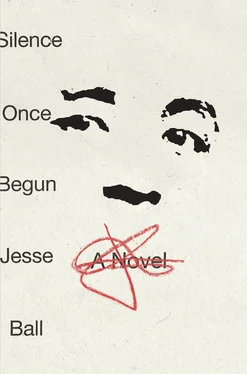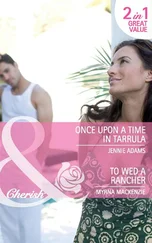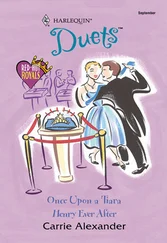
INT.
You were there then, sitting beside him in the cell. You were a young woman, in the midst of her Ph.D., called away into what must have been as absurd a situation as you had ever dealt with.
MINAKO
I was angry with him. He had never lied, not once, and so I was sure that the confession was true. I was worried about the people who had gone missing. I knew two of them personally, an experience the rest of my family did not have, and so …
INT.
And so it was more complicated for you?
MINAKO
You could say so, but I expect it was more than complicated for all of us.
INT.
Of course, I don’t mean to say …
MINAKO
I know, I understand. I just meant that my loyalties, my immediate duties in the situation were twofold. I wanted simultaneously to help my brother, a person I loved as much as I had ever loved anybody. I preferred him, in fact, preferred him to Jiro, to my mother, to my father. He was the only other one who actually read, who encouraged my studies. He wrote a great deal of poetry. He was cultured, although I don’t know that anyone besides me knew that. I don’t believe he shared that with anyone … I wanted to help him, but I also wanted to find these two people who were missing, a woman who had been my violin teacher, and a man, a Shinto priest whom I had visited as a child. I was deeply concerned that they should be missing, and I felt the guilt of their disappearance keenly. If there was something I could do to help them, I must do it, so I told myself.
INT.
And that led to you behaving in a certain way?
MINAKO
One can’t say how one behaved or why, really. Such situations, they are far more complex than any either/or proposition. It is simplistic to produce events in pairs and lean them against each other like cards. I suppose if you are playing go or shogi, then such a thing might be helpful, but that is not life.
INT.
But you might have simply done things to make his time more bearable, irrespective of his guilt, or, alternately, tried to query him about the crime itself.
MINAKO
I did the latter. I sat by him and I told him that he was my brother, that I did not refuse him any family connection based on what happened, but that I needed to know if these people could be helped, or …
INT.
Or?
MINAKO
Or if they were beyond help.
INT.
And did he speak to you?
MINAKO
He did not. He watched me as I came in. He sat by me. He held my hand. When I left, we embraced. But there was no speech. It was as though he had become pre-literate. The expressiveness of his manner was magnified. His actions no longer leaned on his words. All that he meant he meant through his face and eyes, his hands.
INT.
And what did those tell you? How did they speak to you?
MINAKO
That there wasn’t any hope in him, none at all. That he was waiting to die, and did feel, did indeed feel that he was not any part of any community, not ours, not any.
INT.
But he embraced you.
MINAKO
I initiated the embrace. It might have been as much out of habit as anything else. Or out of boredom. Who can say? He had been in the cell a long time.
INT.
His silence, were you prepared for it by the way he had been as a boy?
MINAKO
Everything is contextual. No situation he had been in as a boy was anything like the one I found him in.
[ Int. note . When Jiro discovered that Minako had come to be interviewed, he cautioned me against her. He said that she had always been against Sotatsu, that she had enjoyed the prestige that his crime had afforded the family (a peculiar point, and one I did not understand), and that it was in part due to her intervention that Sotatsu’s case had gotten worse. I absorbed this information, but did not act on it in any regard.]

INT.
So you had visited him a half dozen times, simply sitting with him, before this visit that you just began speaking of?
JIRO
As I described before, I simply sat with him. I didn’t expect I could accomplish anything else. I was a young man, and had no idea what I would say, or if there was anything to say.
INT.
But then you had this outburst.
JIRO
Yes, I had the outburst, on my eighth or ninth visit.
INT.
Can you describe the events that led to the outburst?
JIRO
Things had become bad for us in the town. No one would speak to my mother. Only my very best friends would tolerate me, and even then, only in private. My father, who had been a fisherman all his life, could no longer sell his fish. No one would buy them. It came to a head one day when my father went to the store to buy something. I don’t know what he was buying, but the store clerk wouldn’t serve him. They got into an argument that went out into the street. Apparently the grandfather of the store clerk was one of the people who was missing. They were shouting at each other. I wasn’t there, I only know what people say about what happened.
INT.
And what do they say?
JIRO
That he was denying Sotatsu’s guilt. He was saying Sotatsu hadn’t done it. He just kept repeating it over and over, and although the clerk had been the one who was aggressive at first, denying him service and chasing him out of the store, my father became aggressive in the street. He was just shouting at everyone, getting in people’s faces — not behavior anyone had ever seen. He kept saying, He didn’t do it. He didn’t do it. You know him from a boy. You know him. He didn’t do it . The crowd grew, and became angry. Someone hit him. He fell down. Other people began to hit him. He got hit and many people stepped on him before the police arrived. He was badly hurt and had to go to the hospital. And that’s when it got bad.
INT.
How so?
JIRO
At the hospital, they wouldn’t receive him. So, he had to be driven to a different hospital where they did take him.
INT.
How could that be, that the hospital wouldn’t take him?
JIRO
I believe the presiding doctor was connected with a victim of the Disappearances also.
INT.
And so, this is all prelude to your visit, no?
JIRO
That day I went to see Sotatsu. He knew nothing of any of this, and was the same as he had always been, just sitting in the cell. When he saw me, he stood up and came to the bars. I looked at him and I thought, is there something I can see, some change in him that would make him a different person than the one I knew? I looked at him very carefully. I wanted to see who it was I was looking at. And it wasn’t anyone else. It was my brother, Sotatsu. I had always known him. It was absurd that he had done these things. He hadn’t done them. I was suddenly completely sure. I said to him, I said, Brother, I know you didn’t do these things. I don’t know where this confession came from, but it isn’t true. I know this . And I took his hand through the bars.
INT.
The guards let you touch his hand?
JIRO
I don’t remember what the officers were doing. They were watching, but they didn’t stop us. I don’t think they felt that Sotatsu was any danger. If you had ever seen him, you would not think him any danger.
INT.
And what did he say, you said he spoke then, what did he say?
JIRO
He said, Brother, I didn’t do anything. I didn’t do it .
INT.
And what did you say? You must have been shocked.
JIRO
I was not shocked. It was what I expected. I said to him that he hadn’t done it, because I believed he hadn’t done it, and then he replied, confirming what I said. It was all very clear.
Читать дальше













